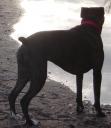Posted on December 24, 2009 by annietv600
 The Brooke, an equestrian welfare charity in the UK, surveyed 3,000 people to identify the most annoying office clichés of 2009. Some of my pet peeves are on this list. Let’s banish them forever! See below for the top 20 annoying clichés. I would add those annoying old ones that people still use: “Taking it to the next level” and “Pushing the envelope”.
The Brooke, an equestrian welfare charity in the UK, surveyed 3,000 people to identify the most annoying office clichés of 2009. Some of my pet peeves are on this list. Let’s banish them forever! See below for the top 20 annoying clichés. I would add those annoying old ones that people still use: “Taking it to the next level” and “Pushing the envelope”.
1. At the end of the day
2. What goes around, comes around
3. It’s not rocket science
4. Thinking outside the box
5. Flogging a dead horse
6. Don’t shoot the messenger
7. Going forward
8. By the close of play
9. Give you the heads up
10. Live and learn
11. C’est la vie
12. Don’t put all your eggs in one basket
13. Hit the ground running
14. Always look on the bright side of life
15. Suck it and see
16. Don’t look a gift horse in the mouth
17. Don’t worry, be happy
18. I know it’s a big ask
19. I’m out
20. There are no flies on me
Read more about the survey here; and, if you work in a cubicle, this rendition of The Cubicle Song is worth another listen.
Filed under: Uncategorized | Comments Off on Office Clichés Best Forgotten in 2010
Posted on December 23, 2009 by annietv600

The January 2010 issue of Medical Education is now online, and for now, it is free online! Here are the contents of this issue:
- The state of the science in health professional education
- On complexity and craftsmanship
- The value of paradoxical tensions in medical education research
- Identities as performances: encouraging visual methodologies in medical education research
- The gross anatomy laboratory: a prototype for simulation-based medical education
- Patients in health professional education: so much known, so much yet to understand
- How does research on motor skills translate into clinical skills learning?
- Medical education and other disciplines
- To err is human
- The power of feedback
- Improving the flexibility and efficiency of testing
- Self-organisation, integration and curriculum in the complex world of medical education
- It’s NOT rocket science: rethinking our metaphors for research in health professions education
- Identity, identification and medical education: why should we care?
- A critical review of simulation-based medical education research: 2003–2009
- Active patient involvement in the education of health professionals
- Motor skill learning and performance: a review of influential factors
- Cognitive load theory in health professional education: design principles and strategies
- Diagnostic error and clinical reasoning
- State of the science in health professional education: effective feedback
- A primer on classical test theory and item response theory for assessments in medical education
Filed under: Continuing Health Education, Individual Issues of Journals | Comments Off on Medical Education January 2010; 44 (1) – free online!
Posted on December 22, 2009 by annietv600

Here is the 2009 list of banished words from Lake Superior State University. From the site:
Lake Superior State University “maverick” word-watchers, fresh from the holiday “staycation” but without an economic “bailout” even after a “desperate search,” have issued their 34th annual List of Words to Be Banished from the Queen’s English for Mis-use, Over-use and General Uselessness. This year’s list may be more “green” than any of the previous lists and includes words and phrases that people from “Wall Street to Main Street” say they love “not so much” and wish to have erased from their “carbon footprint.”
Filed under: Friday Fun | Comments Off on Lake Superior State University 2009 List of Banished Words
Posted on December 16, 2009 by annietv600

It’s that time of year again, when the major medical journals publish their Christmas (AKA holiday) reading. Below are some of my favourites from the CMAJ Holiday Review, from the December 2009 issue of CMAJ. For past Christmas issues, see Christmas Journal Issues.
Faux Review: A report on the zombie outbreak of 2009: how mathematics can save us (no, really)
An outbreak of zombification wreaked havoc recently in Canada and the rest of the world. Mathematical models were created to establish the speed of zombie infection and evaluate potential scenarios for intervention, mainly because mathematicians don’t have anything better to do with their time. We review the development of these models and their effect on the undead.
Research: Snappy answers to stupid questions: an evidence-based framework for responding to peer-review feedback
We developed a Scale of Silliness (SOS) and a Scale of Belligerence (SOB) to facilitate the assessment of inadequate peer-review feedback and guide users in preparing suitable responses to it. The SOB score is tempered by users’ current mood, as captured by the Mood Reflective Index (MRI), and dictates the Appropriate Degree of Response (ADR) for the particular situation.
Satire: Compendium of rejected CMAJ manuscripts: 2009
Filed under: Christmas Journal Issues, Friday Fun | Comments Off on CMAJ Holiday Review 2009
 The Brooke, an equestrian welfare charity in the UK, surveyed 3,000 people to identify the most annoying office clichés of 2009. Some of my pet peeves are on this list. Let’s banish them forever! See below for the top 20 annoying clichés. I would add those annoying old ones that people still use: “Taking it to the next level” and “Pushing the envelope”.
The Brooke, an equestrian welfare charity in the UK, surveyed 3,000 people to identify the most annoying office clichés of 2009. Some of my pet peeves are on this list. Let’s banish them forever! See below for the top 20 annoying clichés. I would add those annoying old ones that people still use: “Taking it to the next level” and “Pushing the envelope”.





